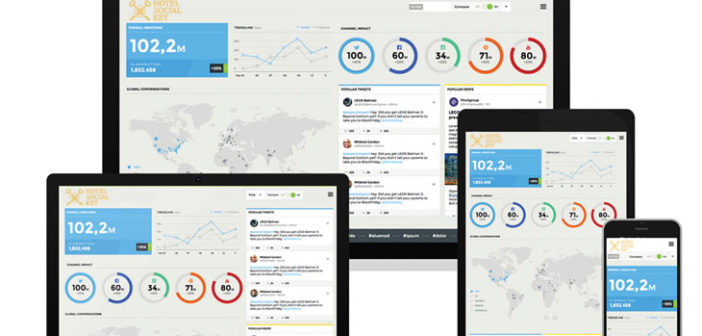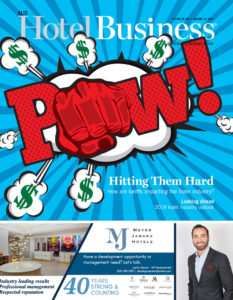WASHINGTON—Anybody can tell a story, but not everybody can tell a story well. While the marketers of the past are continuing to focus their efforts on pitching brand stories from a selfish place, the marketers of tomorrow are listening, adapting and sharing stories based on the needs of consumers. Considering itself to be part of the latter, Storified Hospitality Group is taking hospitality marketing and flipping it on its head.
“A lot of brands have the opportunity to use storytelling to woo consumers, but hospitality brands can take it even further, given that they are experiential platforms that can truly engage on an emotional level—both good and bad,” said David Beebe, founder and CEO, Storified Hospitality Group, a company dedicated to being the hospitality industry’s go-to storyteller for brands. “I want to transform every experiential hospitality brand—from hotels to restaurants to wineries to retail to transportation—into storytellers who think in a consumer-centric way. It doesn’t mean that all of your marketing needs to be story-driven, but it should provide value first.”
Beebe, who was the first-ever VP of global creative and content marketing at Marriott International, left the hospitality powerhouse to pursue his passion for transforming hospitality brands into storytellers. “I wanted to get back to building something from the ground up again versus being stuck in corporate politics, budget meetings and such,” he said. “That’s great if that’s the role you want, but I wasn’t done building.” After leaving Marriott, he took his love for storytelling on the road by traveling the world to speak to brands, run workshops and help leaders identify problems within the hospitality industry.
Throughout his world tour, he found many high-level marketing executives living in the past. “The challenge is that consumers now control when, where and how they interact with your brand,” Beebe said. “Yet, senior level marketing leaders were taught to hit consumers over the head with features and benefits. That worked when consumers couldn’t skip commercials, download ad blockers and make their own choices—but they can now.” His alternative to legacy marketing tactics? Give consumers what they want.
“The content needs to solve problems, entertain them, make their lives easier,” he said. “We need to provide value, transform the way brands think and act, but it’s hard when senior leaders just want to talk about the brand all day long. Don’t get me wrong, I’m all about branding, and it’s important, but the industry needs to think differently now.”
What’s preventing senior executives from changing their ways is fear, he said. “Fear of change, fear of their jobs going away, fear of doing things differently,” Beebe said. “But you now have people who are working at companies at the manager level who were trained differently, who grew up using social media, who understand thinking consumer-first and who know what they want to see. However, their ideas often die in committee meetings due to fear.” This fear often thrives on insecurities associated with storytelling.
“The biggest mistake that is made by brands leading with storytelling is that it often turns into an ad because too many people were involved, but typically no one had a storytelling background,” he said.
Today, for hospitality brands, Storified offers StoriedHotels.com, a consumer media brand; technology solutions such as Hotel Social Key, a media intelligence solution designed specifically for hotel marketers; and storytelling training, workshops and labs.
“We’re working with past clients and are focused on building consumer sites, technology products and training solutions for hotels, hotel management and ownership groups, restaurants, wineries and transportation providers,” Beebe said.
Before Storified begins crafting stories for clients, there’s homework involved. The content marketing company delves deep with its clients to fully understand their history, structure and challenges. “It’s important we understand and they know that leading with storytelling or even training is a long journey,” Beebe said. “We have to understand the people first.”
Being that Storified’s clients are so diverse, there’s no one-size-fits-all approach when the content marketing company is developing content for its own clients.
“For example, a hotel might partner with us to create custom content on StoriedHotels.com, including a documentary or original series, or subscribe to Hotel Social Key, but a restaurant group might want training through webinars and video courses or in-person via workshops and labs,” he said. “An airline might want to create a film through our content studio. There are so many different ways to engage, and we’ve designed the offering to be client-centric, meaning there are multiple ways in that work for all sizes of brands and budgets.”
Currently, the company has four employees, including former Marriott Digital Media Executive Lucia Evans, but it hires freelance creators, writers and videographers from all over the world. “I look for people who love travel themselves, are adventurous explorers, understand the platforms, and can think both strategically and creatively at the same time,” Beebe said.
While there are plans to hire an editorial director and exclusive creators, the firm would like to primarily rely on virtual teams for content creation.
“We don’t need heavy overhead, expensive leadership or old-school structures,” he said. “This is about moving fast, testing and trying things, making mistakes and learning, but more so, about having fun along the way and getting to travel everywhere.”
It took about six months to put Storified Hospitality Group together. During those months, Beebe and his team were also seeking an investor. Eventually, the company closed an undisclosed seed round of financing, led by travel agency industry veteran David Odaka. Beebe plans to use the financing to further solve the problems hospitality marketers face, scale the multiple brands in the portfolio and invest in new offerings.
Above all, storytelling isn’t just for marketers; everybody involved with a brand should be on board with the story the brand is telling consumers—no matter where they are.
“I want every person to be trained to be a ‘Storyteller in Residence’ at these kinds of brands,” he said. “The first person a customer interacts with is the front-door person, receptionist, etc., and if that person is trained in storytelling and conversation, it can have a direct impact on sales, it can build a relationship, and affect how the customer thinks about the brand. If it’s a bad experience, then all the marketing you’ve done is thrown out the door. We’re all in the people business, and we want to do business with people we like. That same rule applies to brands.” HB



